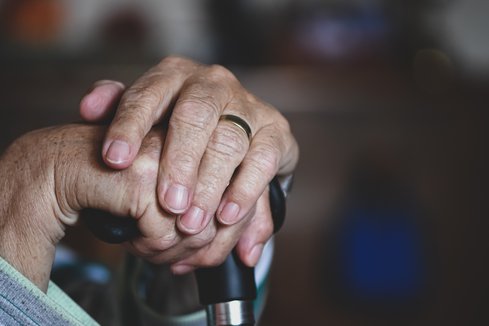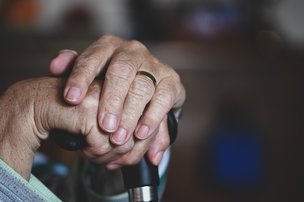
Whether older individuals are ageing in place or enjoying their golden years in an assisted living community, it’s important for them to have a sense of independence.
That doesn’t mean they don’t need help with certain things. As a caregiver, your role is to foster that independence while making sure those people stay safe and healthy.
It should come as no surprise that most of us would be healthier if we drank less alcohol. While a drink here and there might not seem harmful, excessive drinking over the years can cause lasting health effects. Seniors are already at a greater risk of many different health conditions. Exacerbating those risks with alcohol can be dangerous.
So, what can you do as a caregiver to keep any seniors in your care healthy while allowing them the independence to have a drink here and there?
Let’s take a look at how alcohol can impact seniors, and what you can do to help an older person in your care to keep from drinking too much.
The Effects of Alcohol on Seniors
Drinking can impact everyone. In the short term, it can cause problems like dizziness, cognitive issues, and stomach problems. If you drink excessively for several years, you could be at a greater risk of illnesses like heart disease.
Like many other things, however, alcohol can impact seniors more severely, putting them at a greater risk of things like:
- Sleep problems
- Mental health issues
- Memory problems
- Medication mix-ups
- Difficulties balancing
It’s important to educate yourself on how alcohol affects the body. If you’re a caregiver, you have to be aware of any ailments the seniors you’re looking out for might be dealing with. Alcohol can impact everything from the immune system to the cardiovascular system. If the senior in your care has a heart condition or tends to get sick frequently, regular drinking can make those problems much worse – and much more dangerous.
How to Address and Manage Alcohol Use
If the senior you’re caring for lives at home, it’s important that they have as much independence as possible. However, there’s a fine line when it comes to what they can do while remaining safe and healthy. It’s up to you to navigate that line for them. If they do drink, make sure you know how to address it with them, and come up with ways that you can help them manage their alcohol consumption.
First, consider why they might be drinking. Maybe it’s an old habit. Maybe they’re doing it out of boredom. Or, perhaps they’re dealing with an underlying mental health issue like loneliness or depression. If they need professional help, don’t hesitate to reach out to a therapist or counsellor who can guide them. Alcohol abuse is more common in older individuals than you might think, and it’s essential to address it as quickly as possible.
If they’re drinking out of habit or boredom, find ways to help them manage those habits. Promote activities and socializing. Encourage them to find new hobbies they enjoy or something that challenges them. Try to help them boost their physical activity, as well. Helping them to lead healthier, fuller lives can improve the way they feel – mentally and physically – and may reduce the desire to drink.
Encourage Healthy Independent Living
In addition to promoting healthy habits that can deter drinking, you can make life more fulfilling for the seniors you care for by helping them live more independently.
Whether they’re living at home or in an assisted facility, small changes can make a big difference.
For example, if they want to age in place, you can help them to stay safe at home by making some modifications. Some of the easiest DIY projects to improve safety in a senior home include:
- Installing grab bars for toilets and tubs
- Removing throw rugs or “pinning” them down to avoid trips and falls
- Rearranging furniture to ensure clear pathways
- Replacing doorknobs with lever handles
- Installing lighting stairways and dark areas
As you can see, these are small changes, but they can make living alone much easier for the person you care for. They might try to use alcohol as a way to maintain independence or feel more “youthful.” By making their home safer, you can help to maintain that independence for them in healthier, more effective ways.
At the end of the day, one of the best things you can do is talk to the senior in your life about alcohol use. It doesn’t necessarily need to be forbidden, but it should be monitored.
An older individual slowly sipping a glass of wine or a can of beer now and then isn’t harmful and can be a way for them to socialize. However, it’s essential to encourage healthy habits, try to limit their drinking, and educate them on how it could be negatively impacting their health.

